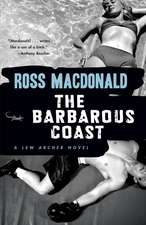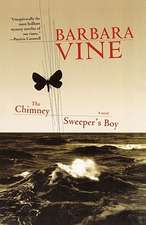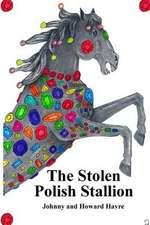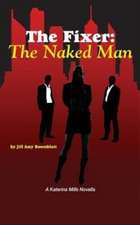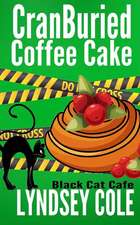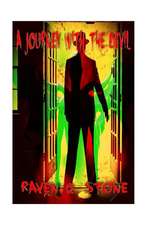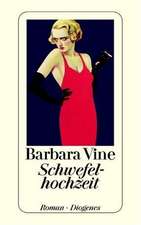Grasshopper: Vintage Crime/Black Lizard
Autor Barbara Vineen Limba Engleză Paperback – 31 mai 2002
When Clodagh Brown writes these words at the age of nineteen, she believes that she is leaving behind the traumatic events of her youth. But Clodagh soon learns that you can never entirely escape your past.
In the aftermath of the incident on the pylon--one of the great electrified structures that dot the English countryside like so many gargantuan grasshoppers--Clodagh goes off to university, moves into a basement flat arranged by her unsympathetic family, and finds freedom trekking across London's rooftops with a gang of neighborhood misfits. As she begins a thrilling relationship with a fellow climber, however, both Clodagh and the reader are haunted by the memory of the pylon and of the terrible thing that happened there--and by the eerie sense that another tragedy is just a footfall away.
| Toate formatele și edițiile | Preț | Express |
|---|---|---|
| Paperback (2) | 104.48 lei 3-5 săpt. | |
| Vintage Crime/Black Lizard – 31 mai 2002 | 104.48 lei 3-5 săpt. | |
| Penguin Books – 2 mai 2001 | 119.93 lei 3-5 săpt. | +14.41 lei 5-11 zile |
Din seria Vintage Crime/Black Lizard
-
 Preț: 96.74 lei
Preț: 96.74 lei -
 Preț: 100.98 lei
Preț: 100.98 lei -
 Preț: 116.64 lei
Preț: 116.64 lei -
 Preț: 100.57 lei
Preț: 100.57 lei -
 Preț: 101.58 lei
Preț: 101.58 lei -
 Preț: 97.34 lei
Preț: 97.34 lei -
 Preț: 104.39 lei
Preț: 104.39 lei -
 Preț: 100.76 lei
Preț: 100.76 lei -
 Preț: 106.23 lei
Preț: 106.23 lei -
 Preț: 103.44 lei
Preț: 103.44 lei -
 Preț: 101.58 lei
Preț: 101.58 lei -
 Preț: 81.06 lei
Preț: 81.06 lei -
 Preț: 100.35 lei
Preț: 100.35 lei -
 Preț: 109.71 lei
Preț: 109.71 lei -
 Preț: 102.70 lei
Preț: 102.70 lei -
 Preț: 95.51 lei
Preț: 95.51 lei -
 Preț: 107.68 lei
Preț: 107.68 lei -
 Preț: 123.57 lei
Preț: 123.57 lei -
 Preț: 112.97 lei
Preț: 112.97 lei -
 Preț: 95.10 lei
Preț: 95.10 lei -
 Preț: 121.82 lei
Preț: 121.82 lei -
 Preț: 91.27 lei
Preț: 91.27 lei -
 Preț: 114.69 lei
Preț: 114.69 lei -
 Preț: 92.74 lei
Preț: 92.74 lei -
 Preț: 86.61 lei
Preț: 86.61 lei -
 Preț: 106.64 lei
Preț: 106.64 lei -
 Preț: 98.78 lei
Preț: 98.78 lei -
 Preț: 101.17 lei
Preț: 101.17 lei -
 Preț: 94.35 lei
Preț: 94.35 lei -
 Preț: 101.58 lei
Preț: 101.58 lei -
 Preț: 91.05 lei
Preț: 91.05 lei -
 Preț: 80.41 lei
Preț: 80.41 lei -
 Preț: 111.58 lei
Preț: 111.58 lei -
 Preț: 128.00 lei
Preț: 128.00 lei -
 Preț: 96.11 lei
Preț: 96.11 lei -
 Preț: 96.33 lei
Preț: 96.33 lei -
 Preț: 109.49 lei
Preț: 109.49 lei -
 Preț: 99.94 lei
Preț: 99.94 lei -
 Preț: 111.58 lei
Preț: 111.58 lei -
 Preț: 102.40 lei
Preț: 102.40 lei -
 Preț: 106.45 lei
Preț: 106.45 lei -
 Preț: 100.57 lei
Preț: 100.57 lei -
 Preț: 94.06 lei
Preț: 94.06 lei -
 Preț: 98.15 lei
Preț: 98.15 lei -
 Preț: 162.71 lei
Preț: 162.71 lei -
 Preț: 101.39 lei
Preț: 101.39 lei -
 Preț: 113.56 lei
Preț: 113.56 lei -
 Preț: 95.51 lei
Preț: 95.51 lei -
 Preț: 93.22 lei
Preț: 93.22 lei
Preț: 104.48 lei
Nou
Puncte Express: 157
Preț estimativ în valută:
19.99€ • 20.80$ • 16.51£
19.99€ • 20.80$ • 16.51£
Carte disponibilă
Livrare economică 24 martie-07 aprilie
Preluare comenzi: 021 569.72.76
Specificații
ISBN-13: 9780375726507
ISBN-10: 0375726500
Pagini: 400
Dimensiuni: 132 x 204 x 22 mm
Greutate: 0.3 kg
Ediția:00002
Editura: Vintage Crime/Black Lizard
Seria Vintage Crime/Black Lizard
ISBN-10: 0375726500
Pagini: 400
Dimensiuni: 132 x 204 x 22 mm
Greutate: 0.3 kg
Ediția:00002
Editura: Vintage Crime/Black Lizard
Seria Vintage Crime/Black Lizard
Notă biografică
The new Barbara Vine novel, The Blood Doctor (1-4000-4504-5), will be published by Harmony Books in July 2002. She lives in London.
Extras
They have sent me here because of what happened on the pylon. Or perhaps so that I don't have to see the pylon every time I go out or even look out of a window.
"We've thought of selling this house and moving," my father said. "Don't think it hasn't been in our minds. Still you won't . . ."
He left the sentence unfinished, but I knew how he would have ended it. You won't always be here, he'd meant to say. A girl of your age, you won't live at home much longer, you'll be off to college or a job, a home of your own. And out of sight, out of mind, he meant too. Gradually people will stop thinking of us as the parents of that girl, they'll stop asking what kind of parents we were to bring up a girl who would do that, and they'll stop staring and pointing us out. Especially if you don't come home very often. Maybe they'll think you're dead. Maybe we'll tell them you are.
That last bit was in my imagination. I'm not saying they wish me dead. They have my welfare at heart, as my mother puts it. Which must be why they were so happy--happier than I've seen them since before the pylon day--when Max made his offer. The best they'd hoped for was a room in whatever accommodation the college had available or for me to be the fourth girl in a shared flat somewhere.
"A whole flat to yourself," my mother said, "and in a lovely part of town."
I had a picture in my mind then of rows and rows of mock-Tudor houses, striped black and white like zebras, with pampas grass in their front gardens and Audis outside their garages. Daniel and I had seen plenty of them, riding around the ring roads on his old Motoguzzi. Our London was the outer suburbs, Waltham Cross and Barnet, Colindale and Edgware, Uxbridge and Richmond and Purley. We counted the pylons and took photographs of the barbed-wire guards on their legs. We never penetrated as far as Maida Vale and we'd never heard of Little Venice. But still I thought "a nice part of town" must mean houses like our house. How Max could have a flat in it, I couldn't imagine. Flats were in blocks, there had been plenty of those up along the North Circular Road too, great sprawling flat-roofed buildings painted custard color with their names in letters of black or silver: Ferndean Court and Summerhill and Brook House. So when I got here this afternoon I wasn't prepared for what I found.
My father had been going to drive me. It's what parents do when their child goes off to college and a new place to live in. I've seen enough of it to know. They pack up the trunk of the car and all the back of the car too, with clothes and sports gear and books and radio and CD player and maybe a computer and, of course, a hamper of food. It's a joyful occasion, a turning point in someone's life, and if it's the dad driving and the mother left behind, she's tearful but she's smiling too, calling out "Good luck" and making the departing one promise to phone as soon as she's settled in and not to forget the cold chicken in the hamper and the homemade cake. My leaving home wasn't like that. I wouldn't have expected it to be and I never had much faith in my father's promise. As it happened, the car went in for service the day before and the garage phoned and said they'd like to keep it for another day to have a look at the electrics. Maybe Dad didn't fix it that way. I expect it was just a piece of luck for him. Anyway, they said it couldn't be helped, I'd just have to manage on the train.
So I left in much the same way as I've lived these past two years, under a cloud. After the pylon my parents had counseling, just as I did, and the counselor told them they had to be understanding and supportive. It was their responsibility to help me put all that behind me and make a fresh start, not blame myself and feel guilty all the time. But they couldn't. I suppose they couldn't help themselves. I think they really saw me as evil. One of the ways they dealt with it was to tell me they didn't "know where I got it from," as if every action you performed and every mistake you made had been made by a string of ancestors before you and passed on in a gene of thoughtlessness or daring--or evil. This morning and all through lunch they were giving me those looks that are a mix of wonderment and--well, resignation, I suppose. And I could see something else there too: relief, hope maybe, a fresh start for them as well.
They have sent me here because of what happened on the pylon. Or perhaps so that I don't have to see the pylon every time I go out or even look out of a window.
"We've thought of selling this house and moving," my father said. "Don't think it hasn't been in our minds. Still you won't . . ."
He left the sentence unfinished, but I knew how he would have ended it. You won't always be here, he'd meant to say. A girl of your age, you won't live at home much longer, you'll be off to college or a job, a home of your own. And out of sight, out of mind, he meant too. Gradually people will stop thinking of us as the parents of that girl, they'll stop asking what kind of parents we were to bring up a girl who would do that, and they'll stop staring and pointing us out. Especially if you don't come home very often. Maybe they'll think you're dead. Maybe we'll tell them you are.
That last bit was in my imagination. I'm not saying they wish me dead. They have my welfare at heart, as my mother puts it. Which must be why they were so happy--happier than I've seen them since before the pylon day--when Max made his offer. The best they'd hoped for was a room in whatever accommodation the college had available or for me to be the fourth girl in a shared flat somewhere.
"A whole flat to yourself," my mother said, "and in a lovely part of town."
I had a picture in my mind then of rows and rows of mock-Tudor houses, striped black and white like zebras, with pampas grass in their front gardens and Audis outside their garages. Daniel and I had seen plenty of them, riding around the ring roads on his old Motoguzzi. Our London was the outer suburbs, Waltham Cross and Barnet, Colindale and Edgware, Uxbridge and Richmond and Purley. We counted the pylons and took photographs of the barbed-wire guards on their legs. We never penetrated as far as Maida Vale and we'd never heard of Little Venice. But still I thought "a nice part of town" must mean houses like our house. How Max could have a flat in it, I couldn't imagine. Flats were in blocks, there had been plenty of those up along the North Circular Road too, great sprawling flat-roofed buildings painted custard color with their names in letters of black or silver: Ferndean Court and Summerhill and Brook House. So when I got here this afternoon I wasn't prepared for what I found.
My father had been going to drive me. It's what parents do when their child goes off to college and a new place to live in. I've seen enough of it to know. They pack up the trunk of the car and all the back of the car too, with clothes and sports gear and books and radio and CD player and maybe a computer and, of course, a hamper of food. It's a joyful occasion, a turning point in someone's life, and if it's the dad driving and the mother left behind, she's tearful but she's smiling too, calling out "Good luck" and making the departing one promise to phone as soon as she's settled in and not to forget the cold chicken in the hamper and the homemade cake. My leaving home wasn't like that. I wouldn't have expected it to be and I never had much faith in my father's promise. As it happened, the car went in for service the day before and the garage phoned and said they'd like to keep it for another day to have a look at the electrics. Maybe Dad didn't fix it that way. I expect it was just a piece of luck for him. Anyway, they said it couldn't be helped, I'd just have to manage on the train.
So I left in much the same way as I've lived these past two years, under a cloud. After the pylon my parents had counseling, just as I did, and the counselor told them they had to be understanding and supportive. It was their responsibility to help me put all that behind me and make a fresh start, not blame myself and feel guilty all the time. But they couldn't. I suppose they couldn't help themselves. I think they really saw me as evil. One of the ways they dealt with it was to tell me they didn't "know where I got it from," as if every action you performed and every mistake you made had been made by a string of ancestors before you and passed on in a gene of thoughtlessness or daring--or evil. This morning and all through lunch they were giving me those looks that are a mix of wonderment and--well, resignation, I suppose. And I could see something else there too: relief, hope maybe, a fresh start for them as well.
"We've thought of selling this house and moving," my father said. "Don't think it hasn't been in our minds. Still you won't . . ."
He left the sentence unfinished, but I knew how he would have ended it. You won't always be here, he'd meant to say. A girl of your age, you won't live at home much longer, you'll be off to college or a job, a home of your own. And out of sight, out of mind, he meant too. Gradually people will stop thinking of us as the parents of that girl, they'll stop asking what kind of parents we were to bring up a girl who would do that, and they'll stop staring and pointing us out. Especially if you don't come home very often. Maybe they'll think you're dead. Maybe we'll tell them you are.
That last bit was in my imagination. I'm not saying they wish me dead. They have my welfare at heart, as my mother puts it. Which must be why they were so happy--happier than I've seen them since before the pylon day--when Max made his offer. The best they'd hoped for was a room in whatever accommodation the college had available or for me to be the fourth girl in a shared flat somewhere.
"A whole flat to yourself," my mother said, "and in a lovely part of town."
I had a picture in my mind then of rows and rows of mock-Tudor houses, striped black and white like zebras, with pampas grass in their front gardens and Audis outside their garages. Daniel and I had seen plenty of them, riding around the ring roads on his old Motoguzzi. Our London was the outer suburbs, Waltham Cross and Barnet, Colindale and Edgware, Uxbridge and Richmond and Purley. We counted the pylons and took photographs of the barbed-wire guards on their legs. We never penetrated as far as Maida Vale and we'd never heard of Little Venice. But still I thought "a nice part of town" must mean houses like our house. How Max could have a flat in it, I couldn't imagine. Flats were in blocks, there had been plenty of those up along the North Circular Road too, great sprawling flat-roofed buildings painted custard color with their names in letters of black or silver: Ferndean Court and Summerhill and Brook House. So when I got here this afternoon I wasn't prepared for what I found.
My father had been going to drive me. It's what parents do when their child goes off to college and a new place to live in. I've seen enough of it to know. They pack up the trunk of the car and all the back of the car too, with clothes and sports gear and books and radio and CD player and maybe a computer and, of course, a hamper of food. It's a joyful occasion, a turning point in someone's life, and if it's the dad driving and the mother left behind, she's tearful but she's smiling too, calling out "Good luck" and making the departing one promise to phone as soon as she's settled in and not to forget the cold chicken in the hamper and the homemade cake. My leaving home wasn't like that. I wouldn't have expected it to be and I never had much faith in my father's promise. As it happened, the car went in for service the day before and the garage phoned and said they'd like to keep it for another day to have a look at the electrics. Maybe Dad didn't fix it that way. I expect it was just a piece of luck for him. Anyway, they said it couldn't be helped, I'd just have to manage on the train.
So I left in much the same way as I've lived these past two years, under a cloud. After the pylon my parents had counseling, just as I did, and the counselor told them they had to be understanding and supportive. It was their responsibility to help me put all that behind me and make a fresh start, not blame myself and feel guilty all the time. But they couldn't. I suppose they couldn't help themselves. I think they really saw me as evil. One of the ways they dealt with it was to tell me they didn't "know where I got it from," as if every action you performed and every mistake you made had been made by a string of ancestors before you and passed on in a gene of thoughtlessness or daring--or evil. This morning and all through lunch they were giving me those looks that are a mix of wonderment and--well, resignation, I suppose. And I could see something else there too: relief, hope maybe, a fresh start for them as well.
They have sent me here because of what happened on the pylon. Or perhaps so that I don't have to see the pylon every time I go out or even look out of a window.
"We've thought of selling this house and moving," my father said. "Don't think it hasn't been in our minds. Still you won't . . ."
He left the sentence unfinished, but I knew how he would have ended it. You won't always be here, he'd meant to say. A girl of your age, you won't live at home much longer, you'll be off to college or a job, a home of your own. And out of sight, out of mind, he meant too. Gradually people will stop thinking of us as the parents of that girl, they'll stop asking what kind of parents we were to bring up a girl who would do that, and they'll stop staring and pointing us out. Especially if you don't come home very often. Maybe they'll think you're dead. Maybe we'll tell them you are.
That last bit was in my imagination. I'm not saying they wish me dead. They have my welfare at heart, as my mother puts it. Which must be why they were so happy--happier than I've seen them since before the pylon day--when Max made his offer. The best they'd hoped for was a room in whatever accommodation the college had available or for me to be the fourth girl in a shared flat somewhere.
"A whole flat to yourself," my mother said, "and in a lovely part of town."
I had a picture in my mind then of rows and rows of mock-Tudor houses, striped black and white like zebras, with pampas grass in their front gardens and Audis outside their garages. Daniel and I had seen plenty of them, riding around the ring roads on his old Motoguzzi. Our London was the outer suburbs, Waltham Cross and Barnet, Colindale and Edgware, Uxbridge and Richmond and Purley. We counted the pylons and took photographs of the barbed-wire guards on their legs. We never penetrated as far as Maida Vale and we'd never heard of Little Venice. But still I thought "a nice part of town" must mean houses like our house. How Max could have a flat in it, I couldn't imagine. Flats were in blocks, there had been plenty of those up along the North Circular Road too, great sprawling flat-roofed buildings painted custard color with their names in letters of black or silver: Ferndean Court and Summerhill and Brook House. So when I got here this afternoon I wasn't prepared for what I found.
My father had been going to drive me. It's what parents do when their child goes off to college and a new place to live in. I've seen enough of it to know. They pack up the trunk of the car and all the back of the car too, with clothes and sports gear and books and radio and CD player and maybe a computer and, of course, a hamper of food. It's a joyful occasion, a turning point in someone's life, and if it's the dad driving and the mother left behind, she's tearful but she's smiling too, calling out "Good luck" and making the departing one promise to phone as soon as she's settled in and not to forget the cold chicken in the hamper and the homemade cake. My leaving home wasn't like that. I wouldn't have expected it to be and I never had much faith in my father's promise. As it happened, the car went in for service the day before and the garage phoned and said they'd like to keep it for another day to have a look at the electrics. Maybe Dad didn't fix it that way. I expect it was just a piece of luck for him. Anyway, they said it couldn't be helped, I'd just have to manage on the train.
So I left in much the same way as I've lived these past two years, under a cloud. After the pylon my parents had counseling, just as I did, and the counselor told them they had to be understanding and supportive. It was their responsibility to help me put all that behind me and make a fresh start, not blame myself and feel guilty all the time. But they couldn't. I suppose they couldn't help themselves. I think they really saw me as evil. One of the ways they dealt with it was to tell me they didn't "know where I got it from," as if every action you performed and every mistake you made had been made by a string of ancestors before you and passed on in a gene of thoughtlessness or daring--or evil. This morning and all through lunch they were giving me those looks that are a mix of wonderment and--well, resignation, I suppose. And I could see something else there too: relief, hope maybe, a fresh start for them as well.
Recenzii
“Mesmerizing. . . . A teasing narrative of fatal obsession.”--Orlando Sentinel
“The Vine novels are sublime works of psychological suspense…Grasshopper is as skillful as anything this wonderful writer has done."--The Seattle Times
"A typically elegant, and typically elegiac, turn from the woman with two award-winning names. And one superlative voice."--Fort Worth Star Telegram
“The Vine novels are sublime works of psychological suspense…Grasshopper is as skillful as anything this wonderful writer has done."--The Seattle Times
"A typically elegant, and typically elegiac, turn from the woman with two award-winning names. And one superlative voice."--Fort Worth Star Telegram
Descriere
From the writer Patricia Cornwell calls "the most brilliant mystery novelist of our times" comes a typically astute and suspenseful tale of what happens when a taste for dangerous heights becomes a way of life.



